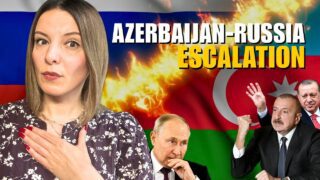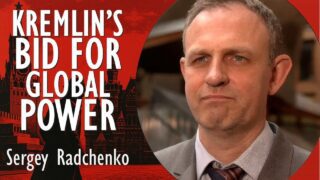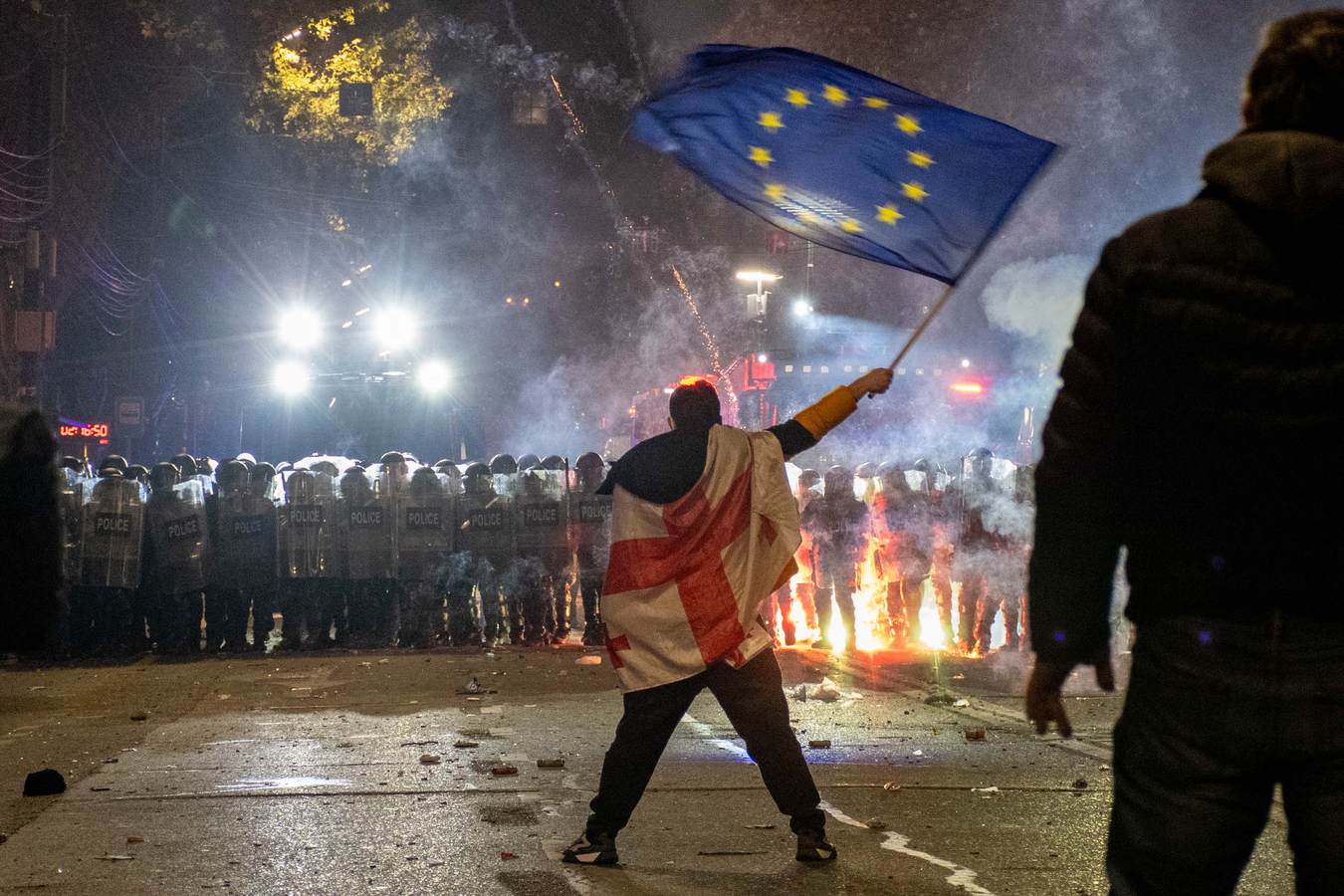
Georgia’s Maidan Moment: Tbilisi rises against Russian influence
On a cold day in November, an extraordinary scene unfolded: Georgia’s President Salome Zourabichvili stood face-to-face with riot police, challenging their loyalty to the nation. “Do you serve Georgia or Russia?” she demanded.
One day later, the streets of Tbilisi became a battleground. In the early hours of 30 November, riot police chased protesters through side streets, cornering them near the Rustaveli theater. People were falling, struggling to breathe from pepper spray, as officers threatened them with worse if they didn’t run.
This confrontation, reminiscent of Ukraine’s Euromaidan protests a decade ago, marks what many see as Georgia’s decisive moment in determining its future path – toward Europe or back into Russia’s orbit.
The immediate catalyst was the ruling Georgian Dream party’s sudden announcement halting EU integration processes until 2028. But the roots of this crisis run deeper, through years of growing Russian influence and a contested October election that many Georgians view as stolen.
Now, as thousands fill Tbilisi’s streets and civil servants resign in protest, Georgia faces what could be its most significant political upheaval since the 2003 Rose Revolution.
Breaking point
“We call it a coup government,” explains Alexander Crevaux-Asatiani, Deputy Director for foreign affairs at the United National Movement (UNM), one of Georgia’s largest opposition parties, “because no one – neither the president, the opposition, nor the international community – recognizes this government as legitimate.”
The crisis has been building since October’s parliamentary elections, where the ruling Georgian Dream party claimed 54% of the vote amid widespread allegations of fraud. International observers noted serious irregularities, while statistical analysis suggests that the party derided as “Russian Dream” stole 15% of the votes.
Yet hell broke loose on 28 November when the Georgian Dream party announced it would halt the country’s EU integration process until 2028, sparking some of the largest demonstrations on record.
For many Georgians, this mirrors Ukraine’s experience when Viktor Yanukovych rejected the EU association agreement in 2013, leading to the Euromaidan revolution, in which Ukraine rebuffed the path of a Russian satellite state.
“It’s exactly the same thing as what Yanukovych did in Ukraine back then, and it’s exactly the same feeling in the street now,” says Crevaux-Asatiani. “By doing that, they are trying to take away the future of an entire generation.”
The rhetoric of the Georgian Dream — talking about being a “sovereign nation with dignity” while claiming to still want EU integration — is very similar to Euromadain protests in Ukraine 10-11 years ago, says Georgian journalist Aka Zarkua, editor of Realpolitika.
Ukrainian ex-President Viktor Yanukovych, who fled to Russia amid shootings of protesters in Kyiv in 2014, also attempted to walk a tightrope between Russia and the West — until pressured by the Kremlin to fall back into Russia’s orbit.
Much like in Ukraine in 2013-2014, protests have spread beyond the capital, Tbilisi, reaching remote towns in a show of nationwide resistance that veteran activists call unprecedented. “It was the first day, and protests were organized in different cities as well – Batumi, other big cities,” Zarkua explains. “It’s remarkable. It just shows how genuine and how widespread the protest is.”
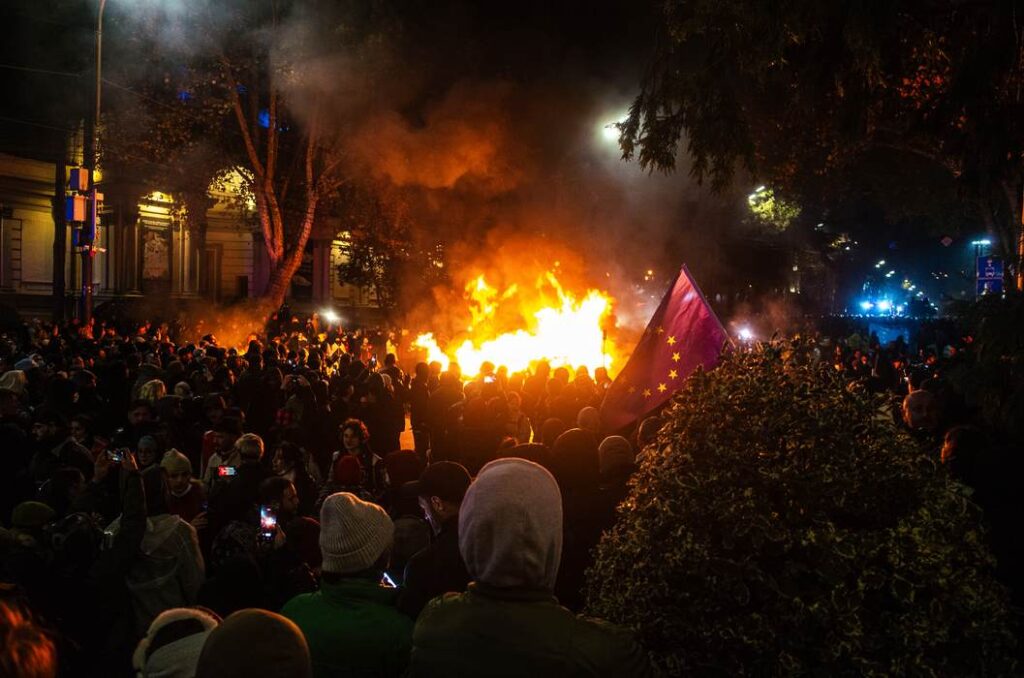
How the Georgian Dream captured Georgia
Unlike Ukraine, where multiple oligarchs compete for influence, Georgia’s political landscape is dominated by Bidzina Ivanishvili. An oligarch who made his fortune in Russia, the founder of Georgian Dream has established what critics describe as near-total control over the country’s institutions.
“In Georgia, unlike in Ukraine, there’s only one oligarch, this Ivanishvili, who controls everything in this country from financial to state level,” explains analyst and activist Marika Mikiashvili.
“Everything in this country is one man’s. It’s insane. Sometimes I think it’s not surprising how he’s still here — it’s surprising how we’re still protesting him, given how vast his resources are.”
Analyst and activist Marika Mikiashvili
This centralization of power has made Georgia particularly vulnerable to Russian influence. Despite 89% of Georgians opposing closer ties with Moscow, over its 12-year rule, the Georgian Dream has steadily aligned with Russian interests, passing legislation mirroring Russian laws, including the controversial “foreign agents” registration requirement for NGOs.
“Georgia is a textbook dystopian example of a Trojan horse takeover. We were so vehemently pro-Western all the time, and Russia didn’t have any really significant foothold in this country socially or culturally. But people had a false sense of security that we could never be dragged back into the Russian orbit. It was a slow-motion poison over the years. People were protesting over the judiciary being captured, corruption, and so on. But now that they protest actual identity matters, the entire state is already captured,” Mikiashvili explains.
“Georgia is a textbook dystopian example of a Trojan horse takeover. People had a false sense of security that we could never be dragged back into the Russian orbit. It was a slow-motion poison over the years.”
Marika Mikiashvili
The alignment with Russia did not come without benefits. Over the past decade, Russia’s share in Georgia’s foreign trade has risen from 5% to 13%. This economic growth, which came at the price of growing economic dependence on Russia, contributed to the ruling party’s popularity and created conditions for the gradual centralization of power around Ivanishvili and the erosion of democratic institutes — a strategy that mirrors Yanukovych’s usurpation of power in the years leading up to 2013.
“With huge money flowing in from Russian oligarchs and impressive economic growth over the last two years, they feel comfortable and confident. They believe they have enough money to bribe anyone dissatisfied while maintaining control of the police and army,” Zarkua explains.

Dignity and the looming threat of Russian invasion
However, the main campaign message of the Georgian Dream’s influence is not economic. It’s the threat of a “Ukrainian scenario” — the idea that a Russian invasion, which followed Euromaidan in 2014, and culminated in a full-blown war in 2022, is inevitable retribution for the choice to be independent.
Georgia has already felt the brunt of Moscow’s tactics: Georgia’s pro-Western steps, which started with the Rose Revolution, were eventually met with Russian troops. Since 2008, 20% of Georgia is under Russian occupation. This fact continues to traumatize Georgian society and leads many Georgian Dream voters to believe it’s more pragmatic to stay low-key and not provoke Russia.
“The Georgian Dream is using intense propaganda, saying that if they’re not in power, Russia will invade, and no one will protect us. They claim the West is weak, so we need to play a clever game and not sacrifice ourselves for the ephemeral benefits of European integration. They feel confident because they have money and control,” Zarkua explains.
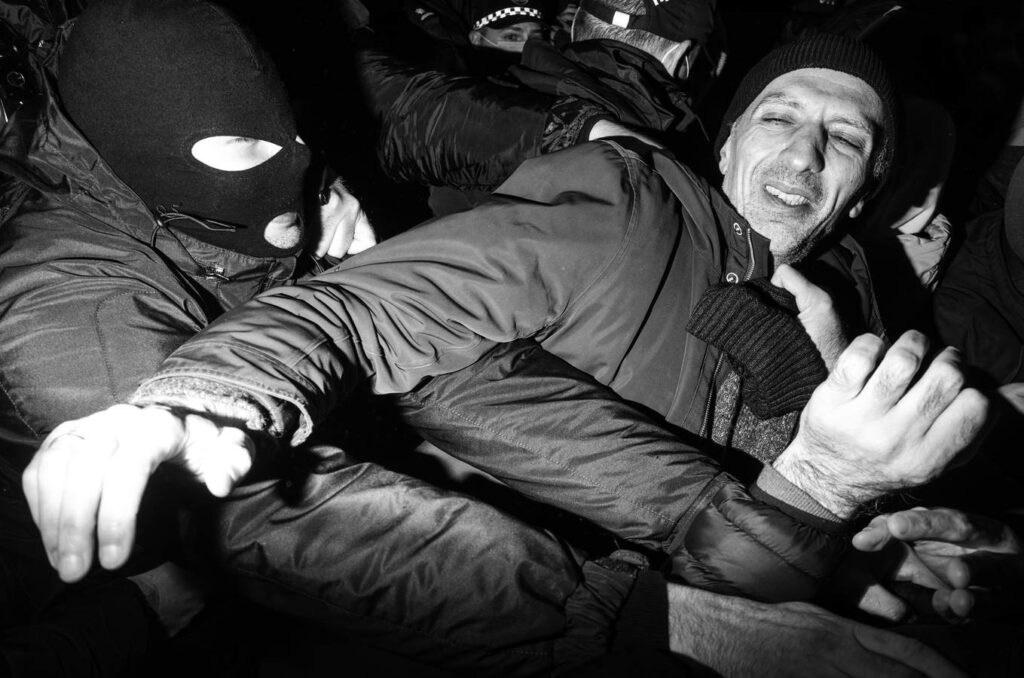
However, this approach is “truly undignified” for him and many Georgians: the only thing Russia accepts is to put its satellite states under full control — “like a colonized state” — or part of Russia. Being “neutral” in this geography means basically being controlled by Russia.
The word “dignity” comes up, mirroring a term for Ukraine’s Euromaidan — the Revolution of Dignity, in which Ukrainians rejected not only the humiliating life under growing authoritarianism but national repression synonymous with Russian influence.
“We believe we’re defending our independence and simply the statehood of Georgia. If we’re not a liberal democracy, if there’s no freedom in Georgia, it becomes a Russian puppet state. Otherwise, due to our geographic location, power here is filled by the Russian autocratic system,” Marika Mikiashvili says, noting another parallel with Ukraine: the desire to live in a democratic society.
“Many Georgians understand it’s impossible for any nation to make dignified terms with Russia – you can only be subdued and subservient. That’s why many Georgians are protesting the government’s decisions now,” Zarkua explains.
Others buy this propaganda, Aka Zarkua admits. “They say, ‘Look what happened to Ukraine – the West didn’t help, so we must be clever enough not to repeat this mistake’.”
Yet others dismiss this narrative: for Marika Mikiashvili, the fight Georgia is facing now is much more urgent and immediate than something hypothetical in the future:
“If we don’t fight today, we’re already occupied by Russia. Our government is Russian. There’s no deeper takeover than being fully governed by Russians.”
Marika Mikiashvili
Protesters draped in Georgian flags attend anti-government protests in Tbilisi on 1 December 2024. Photo: Samira Bayramova
Alexandre Crevaux-Asatiani concurs: “What we truly fear is this de facto government staying in power. We’ve already seen people being violently assaulted several times this year. We’re seeing television stations being shut down and NGO leaders being imprisoned. It will only get worse. The only thing we’re scared of is losing our country.”

Hi! My name is Alya Shandra, I’m the author of this piece. I believe in the power of data and analysis, and that’s why we try to give you the best of it at Euromaidan Press.
Become our patron to help us bring you the best insights from Ukrainian and foreign analysts so we can cut through the noise together.
“This is called a revolution”
The police response to protests has evolved from simple dispersal to crackdowns with rubber bullets, tear gas, and chemically-laced water cannons. The violent tactics sparked outrage and brought more people onto the streets, resulting in record turnouts.
On the night of 1 December, protesters managed to hold their ground, withstanding constant dispersals. In the morning, they were buoyed by people bringing them food — and scores of other protesters coming to take their place and let them rest.
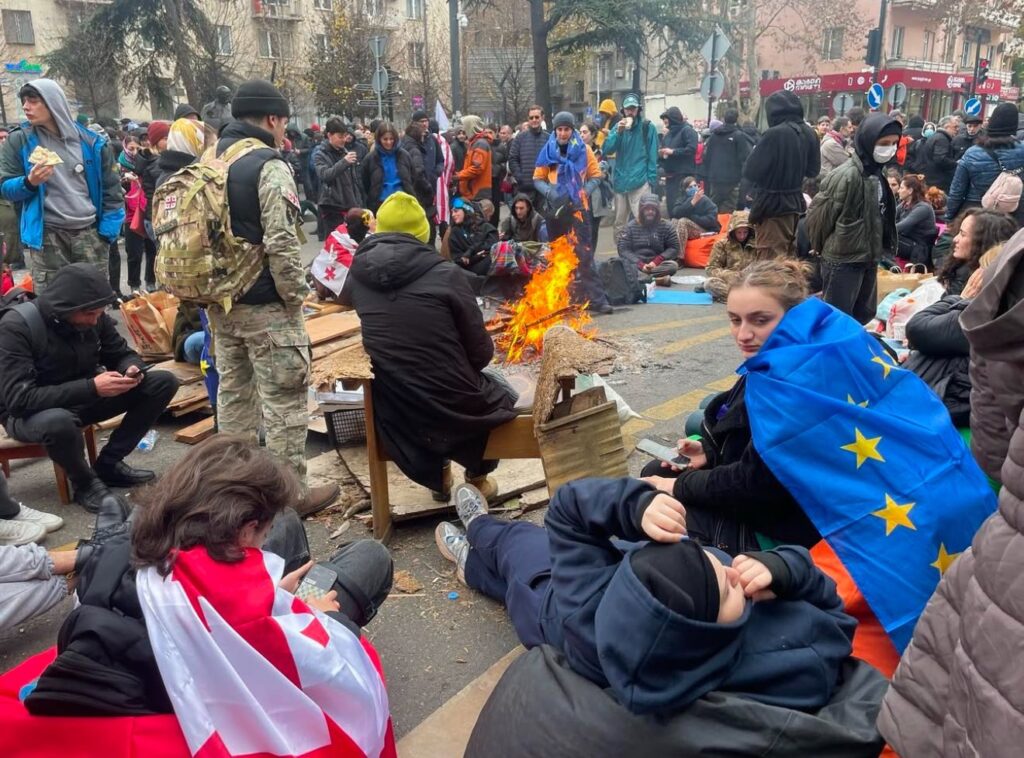
The protest movement itself remains largely decentralized, with opposition parties taking a background role to spontaneous public anger.
“When we, the political parties, try to take leadership and try to get things done, it doesn’t work as well,” Crevaux-Asatiani admits. “The one thing that really works is when the people are angry and they react themselves.”
Marika Mikiashvili shrugs off suggestions that a civil war could ensue: no part of the population would arm themselves in support of the Georgian Dream: “Civil war cannot happen when the other side isn’t motivated to defend. When it’s the police and government against people, it’s called a revolution.”
After the disputed October elections, Georgian opposition activists felt “shock and confusion”: nobody anticipated the Georgian Dream’s stolen victory. Many were disappointed and even depressed with the small scale of the protests, caused by opposition fragmentation and a lack of clear proof of electoral falsifications.
The contrast between October’s muted response to electoral fraud and today’s massive protests reveals a crucial shift in public psychology. “Our entire campaign was built on ‘we are winning,’” explains Mikiashvili. “People had this sense of victory with the spring protests, with opposition more or less conforming into several alliances. There was a window of change atmosphere in the country.”
The shocking electoral defeat left opposition supporters disoriented and exhausted. More importantly, until the EU integration was explicitly rejected, many Georgians clung to hope that change could come through institutional channels.
“Until there was any hope in elections, that the opposition just has to do better – print more pamphlets or whatever – until then, many people would still cling to the hope of next election instead of unseating the government today,” Mikiashvili notes.
By explicitly abandoning Georgia’s European path, the Georgian Dream has eliminated this middle ground. “The elections didn’t result in massive protests, but the anger, resentment, and humiliation didn’t go anywhere,” Mikiashvili adds. “It was left as a landmine for the regime, and it just needed a trigger. This is the trigger they gave us.”
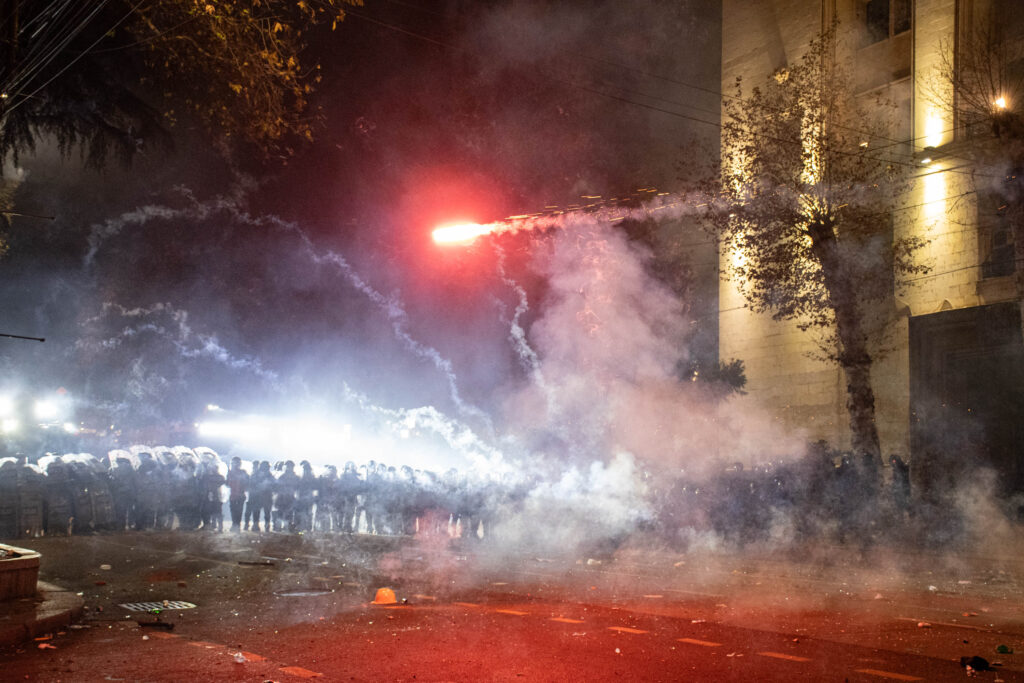
However, the current growing protest momentum inspires hope: increasing numbers of Georgian towns join, public servants and organizations are speaking out, and several ambassadors have resigned.
“Ivanishvili is at his weakest point,” Zarkua believes. “There’s clear evidence of systemic fractures. People who have remained silent for the past 12 years are finally voicing their criticism. While these developments aren’t yet overwhelming in strength or numbers, the cracks in the system are becoming visible,” the journalist notes. “Revolutionary processes are underway, initiated by the government’s own actions.”
However, his regime still maintains control over the police and financial resources, suggesting Georgia is in for a prolonged struggle.
In the most critical of scenarios, the army’s decision to side with either the protesters or the Georgian Dream would prove crucial, Mikiashvili notes. The outcome of this choice is unclear: while Zourabichvili, as the commander-in-chief, could order the armed forces to defend the protesters, patriotic army members were driven out over years of the Georgian Dream’s regime.
When the president chose the streets
President Zourabichvili’s decision to remain in office beyond her term, defying constitutional changes that would replace her with a parliament-chosen successor, has added another layer to the crisis. While not taking direct leadership of the protests, she has emerged as a moral authority, regularly appearing at demonstrations and confronting security forces.
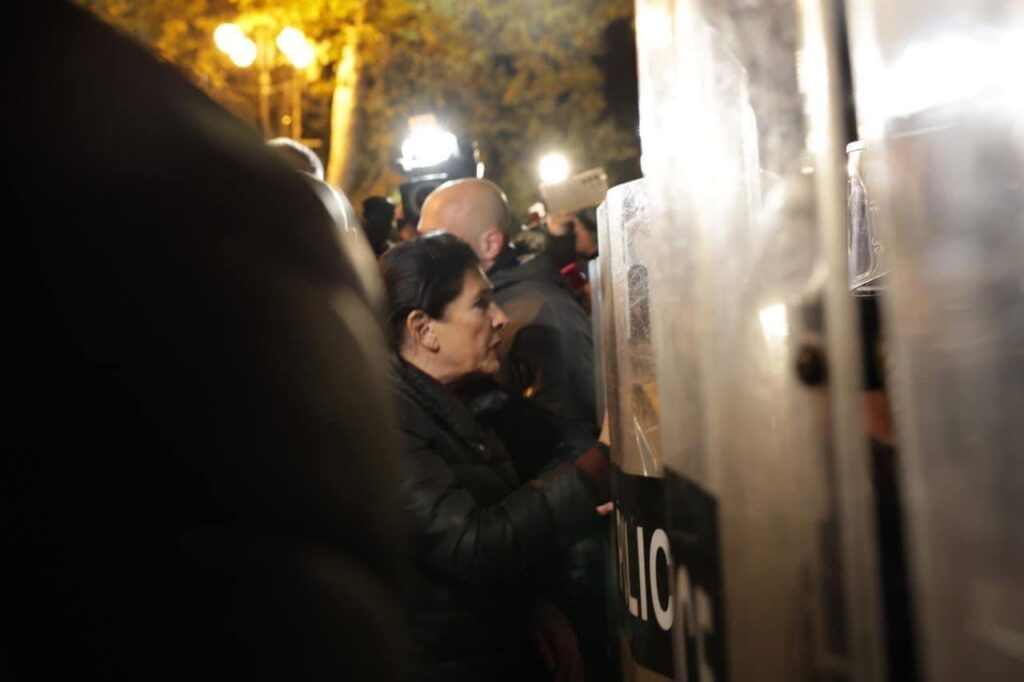
“I am so proud of you! I am proud of Georgia!” Zourabichvili declared to protesters. “A national consensus has been reached on the most critical matter: no one can take away Georgia’s independence, no one can return Georgia to Russia, and no one can deprive Georgia of its will and its European future.”
The president, a vocal critic of the Georgian Dream whose role is nevertheless symbolic, could inject much-needed unity into the divided opposition movement.
“It’s crucial that we have Zourabichvili as a legitimate leader representing Georgians both domestically and internationally. This ensures we’re not left without leadership or direction,” Mikiashvili observes.
However, the success of her initiative to rally the opposition is yet to be seen: the United National Movement, for instance, has frictions around Zourabichvili’s refusal to pardon UNM leader, currently imprisoned former President Mikheil Saakashvili.
International implications
The response of Western powers remains crucial. Zarkua argues that Western hesitation in supporting Ukraine has emboldened anti-democratic forces worldwide. “What helps the Georgian government here and what helps anti-European or Euro-skeptic or pro-Russian forces all around the world is what we are seeing in Ukraine,” he explains. “After this genocidal, horrible war which now lasts for almost three years, we are still seeing Western reluctance in decision making.”
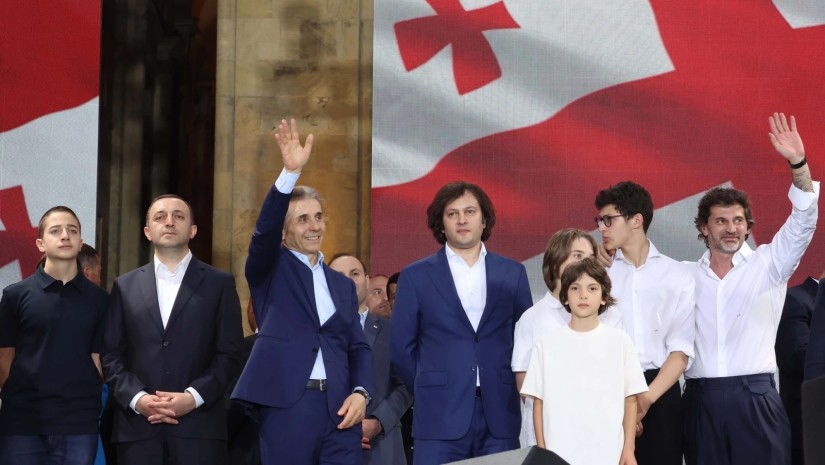
The international community’s response could prove crucial. “We’re going to do our part by fighting to remove this illegitimate government, but we need the international community to do its share by isolating Bidzina Ivanishvili completely,” Crevaux-Asatiani notes. “France has the power to remove his French citizenship, sanction him, and confiscate his assets. Instead, they decided to decorate him with the Legion of Honor back in 2021.”
Others argue for broader economic pressure. “It might be uncomfortable for me if the EU reinstates visa requirements for Georgian citizens, but it must be done,” Zarkua argues. “We need leverage against such actors.”
The journalist argues that previous Western concessions may have emboldened the Georgian Dream. “When they gave Georgia EU candidate status, after all the hostile anti-Western, anti-European rhetoric, it was different from Ukraine and Moldova’s process,” explains Zarkua. “They set prerequisites for Georgia, which the Georgian Dream did nothing to meet. The EU acknowledged nothing was done, yet still granted the status.”
This approach may have backfired. “Now they say, ‘See what happened these last two years? We stood up to European bureaucrats, did things our way, stood with dignity on both feet, and they still granted us candidate status,’” Zarkua notes.
“You don’t appease autocrats – it doesn’t work.”
Aka Zarkua
A decisive moment
As protests continue and more sectors of society join the resistance, Georgia appears to be approaching a critical juncture. The parallels with Ukraine’s Euromaidan are striking, but Georgia’s path may be distinct.
“We’re witnessing a coup d’état that has already happened,” reflects Crevaux-Asatiani. “People are angry because all our hopes for stability, after 3,000 years of history marked by war and constant instability, are being threatened. We finally had a chance to escape that cycle through joining the European Union and NATO. Instead, we’re bound for another cycle of instability because of these people,” the opposition politician explains, highlighting the central role of security in Georgia’s desire for Euro-Atlantic integration.
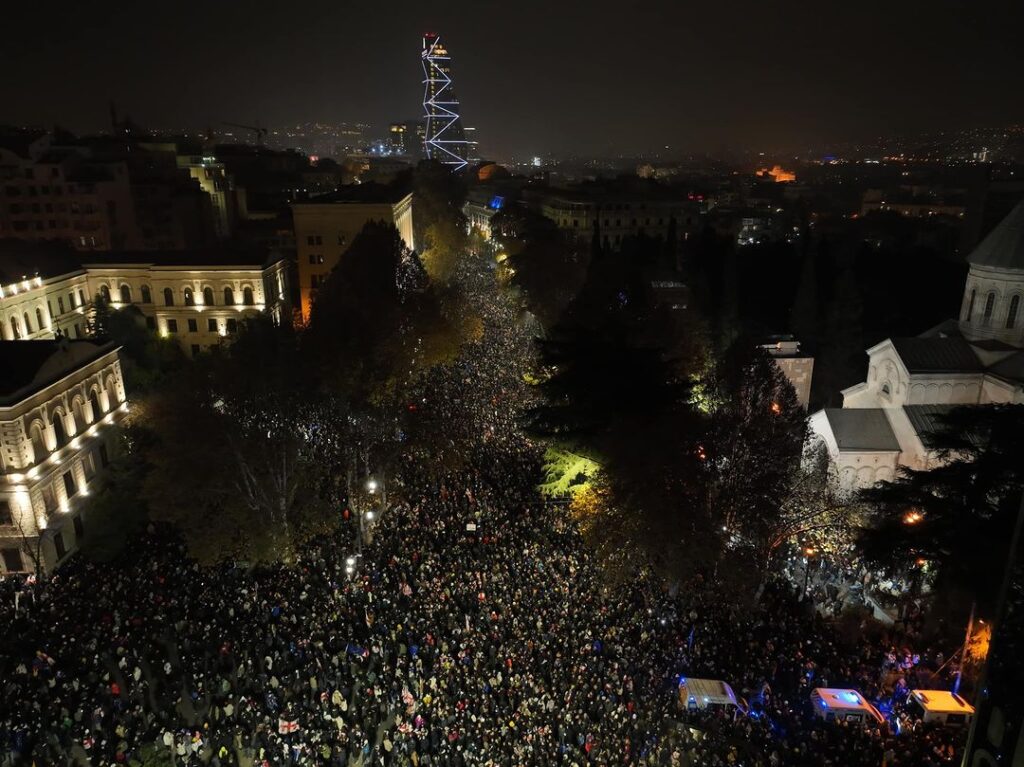
As winter sets in and protests continue, the question isn’t just about Georgia’s immediate political future – it’s about the country’s fundamental identity and its place in the European community. For many Georgians, this is their Maidan moment: a last stand for European integration and democratic values against creeping authoritarianism and Russian influence.
Related:









